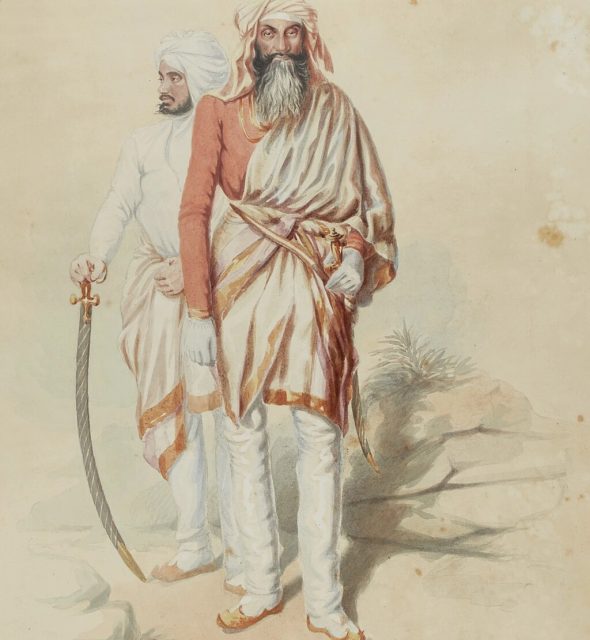BHAG SINGH, RAI (d. 1884) was son of Rai Kishan Chand Bhandari who worked as a vakil or agent under the Sikh government. In the beginning of 1838 when Rai Kishan Chand accompanied Colonel Wade to Peshawar, Bhag Singh officiated in his place as agent at Ludhiana, in the British territory. After the first AngloSikh war (1845-46), Bhag Singh took over as agent of the Lahore Darbar with the Commissioner of transSutlej states; in 1848 he was awarded the title of Rai and a dress of honour.

CHATAR SINGH ATARlVALA (d. 1855), commander and provincial governor under minor Maharaja Duleep Singh, was the son of Jodh Singh Atarivala. Jodh Singh had joined the service of Maharaja Ranjit Singh in 1805 when he received large jagirs in the Pothohar country. On the death of his father in that year, Chatar Singh succeeded to the jagrrs, then amounting to over a lakh of rupees annually. He devoted most of his time to farming and kept generally aloof from state affairs during the reign of Maharaja Ranjit Singh. When after the assassination of his son, Maharaja Sher Singh, in September 1843, his daughter, Tej Kaur, was betrothed to Maharaja Duleep Singh, he came into prominence politically.
FATEH SINGH AHLUVALIA (d. 1836), son of Bhag Singh, and a grandnephew of Jassa Singh Ahluvalia, leader of the Ahluvalia misi and of the Dal Khalsa, who in 1758 proclaimed the sovereignty of the Sikhs in the Punjab. Fateh Singh succeeded to the Ahluvalia chiefship in 1801. He was the chosen companion of Maharaja Ranjit Singh, with whom he in 1802 exchanged turbans in a permanent bond of brotherhood. Fateh Singh took part in almost all the early campaigns of Ranjit Singh Kasur (1802-03), Malva (1806-08), Kangra (1809), Multan (1818), Kashmir (1819) and Mankera (1821). He fought in the battle of Haidru (1813) and held command in the Bhimbar, Rajauri and Bahawalpur expeditions.






